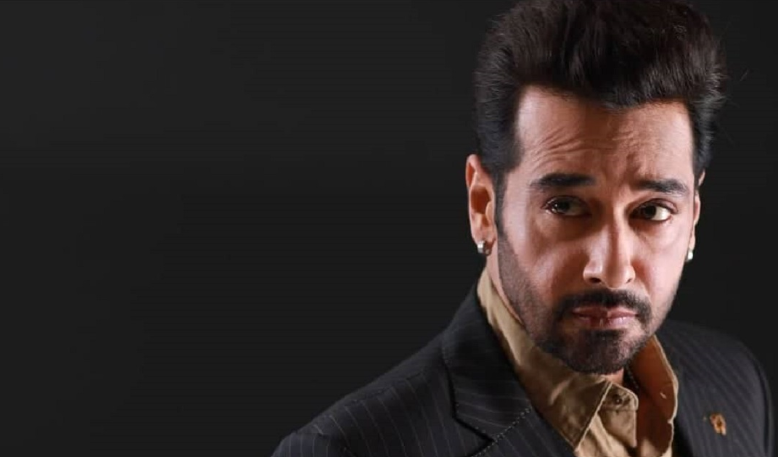November 3, 2023
Understanding Faysal Qureshi's Angle on 'Mera Jism Meri Marzi'

In a recent interview clip that has been circulating on the internet, Pakistani actor Faysal Qureshi addressed the feminist slogan 'Mera Jism Meri Marzi.' His dialogue with host Adnan Faisal at the FHM Pakistan podcast sparked a renewed verbal exchange around this slogan. We delve into Faysal Qureshi's perspective on consent, marital relations inside cultural and non-secular contexts, and the distortion of 'Mera Jism Meri Marzi.'
Faysal Qureshi mentioned the importance of consent within the framework of spiritual and cultural expectancies. He mentioned that in Islam whilst men name their better halves, they may be obliged to move, but there are positive conditions to this call for. Those prerequisites encompass performing the 5 each day prayers, carrying out acts of charity, and income via a valid approach. Qureshi emphasized the importance of no longer keeping apart marital family members from those non-secular duties and following the Prophetic model (Sunnah) as a complete manual.
Qureshi expressed disapproval of cherry-picking non-secular teachings and fixating on precise components whilst ignoring the wider context. He emphasized the want to keep in mind a whole lot of spiritual compulsions and no longer cognizance totally of one precise factor.
The actor highlighted the difficulty of consent and the misconception that has arisen around the 'Mera Jism Meri Marzi' slogan. He clarified that the slogan is about consent and pointed out that even as a man, he expects appreciation for his consent. Qureshi stressed that the distortion of this slogan into a joke is a purpose for the subject.
Faysal Qureshi also mentioned the lack of right communication surrounding sensitive problems. He cited an instance where people lodge to pressure after accomplishing bad behavior, including coming home drunk and hitting their partner. He emphasized the need for optimistic dialogue and the unfavorable outcomes of simultaneous, directionless conversations.
The actor addressed the stigmatization of divorce and contrasted it with the glorification of extramarital affairs. He highlighted the social taunts that divorcees often face and expressed bewilderment at the contrasting requirements of morality commonplace online.
Qureshi expressed his bafflement at how certain behaviors are labeled as 'Halal' (permissible) while others are glorified as 'Haram' (forbidden), growing a style around these distinctions. He talked about how even non-public milestones, like Mahira Khan's marriage, no longer get away with complaints, underscoring the negativity that emerges when people lack more constructive preoccupations.
Faysal Qureshi shared his approach to managing cyberbullying and online trolls. He recommended that those who interact with online harassment are regularly in search of interest. He counseled not to be attractive with such people and emphasized the importance of responding evenly and rationally to constructive criticism.
Faysal Qureshi's interview shed light on numerous crucial social and cultural problems, which include the importance of consent, the need for comprehensive know-how of faith, and the demanding situations of navigating societal norms and expectations. It is essential to don't forget his perspective and engage in open, constructive talk to address those problems effectively.
Suggested Read: Light-hearted comedy: Hum Tum drama is a must-watch
Related Post

Upcoming Horror Movies
Get ready for some serious spookiness in 2024! There are a bunch of new scary movies hitting the big screen, and they're bringing back some of our favourite horror franchises.

Bilal Abbas Khan's List of Dramas
Bilal Abbas Khan started acting in 2016 with the drama serial 'Dumpukht' and has been making a mark since then. He won the Best Actor award at the 2020 Lux Style Awards.

Faysal Qureshi List of Dramas
Faysal is well known for hosting and is one of Pakistan’s highest-paid actors. He became popular for his roles in many Pakistani TV dramas like Bashar Momin, Baba Jani, Gustakh, and Fitoor.

Turkish drama in Hindi
The Turkish entertainment industry has become the second-largest exporter of television shows globally. Here's a list of the best Hindi-dubbed Turkish dramas you should consider watching.

Upcoming Horror Movies
Get ready for some serious spookiness in 2024! There are a bunch of new scary movies hitting the big screen, and they're bringing back some of our favourite horror franchises.

Bilal Abbas Khan's List of Dramas
Bilal Abbas Khan started acting in 2016 with the drama serial 'Dumpukht' and has been making a mark since then. He won the Best Actor award at the 2020 Lux Style Awards.

Faysal Qureshi List of Dramas
Faysal is well known for hosting and is one of Pakistan’s highest-paid actors. He became popular for his roles in many Pakistani TV dramas like Bashar Momin, Baba Jani, Gustakh, and Fitoor.
What to watch

Tensports
Watch Ten Sports live TV streaming online in HD now on tapmad. Enjoy watching Ten Sports TV channel live for unlimited sports, ICC World Cup...

Indian Premier League - Ad Free
Watch Sunrisers Hyderabad vs Royal Challengers Bangalore live IPL match stream in Pakistan online on tapmad. Experience the thrill of the Indian...

Eurosport
Eurosport is a pan-European television sports network, owned and operated by Discovery, Inc. Eurosport specializes in the management...